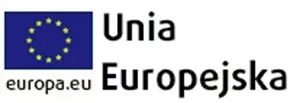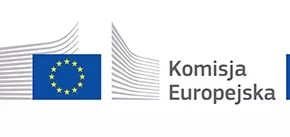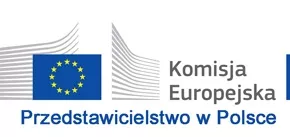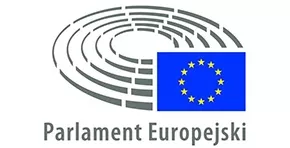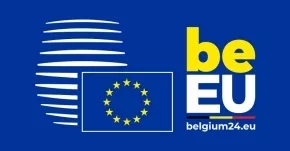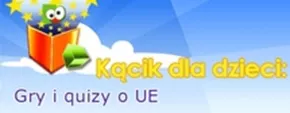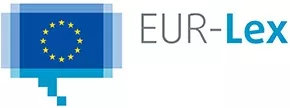Data publikacji: 13.10.2011
Laureaci Europejskiej Nagrody Literackiej za rok 2011
![]() Nazwiska laureatów Europejskiej Nagrody Literackiej zostały ogłoszone 11.10. podczas targów książki we Frankfurcie.
Nazwiska laureatów Europejskiej Nagrody Literackiej zostały ogłoszone 11.10. podczas targów książki we Frankfurcie.
Nagroda jest wyróżnieniem dla najlepszych debiutujących lub początkujących autorów w UE. Tegoroczni zwycięzcy to: Kalin Terziyski (Bułgaria), Tomáš Zmeškal (Czechy), Kostas Hatziantoniou (Grecja), Ófeigur Sigurðsson (Islandia), Inga Zolude (Łotwa) Iren Nigg (Liechtenstein), Immanuel Mifsud (Malta), Andrej Nikolaidis (Czarnogóra), Rodaan Al Galidi (Holandia), Jelena Lengold (Serbia), Çiler İlhan (Turcja) oraz Adam Foulds (Wielka Brytania). Tytuły nagrodzonych książek wymienione są poniżej. Każdy laureat otrzyma 5 tys. euro, a jego praca zostanie przetłumaczona na inne języki, aby umożliwić jej popularyzację za granicą.
„Gratuluję wyjątkowym zwycięzcom tegorocznej nagrody i mam nadzieję, że skorzystają z naszej pomocy w publikacji tłumaczenia swoich książek, tak aby były dostępne w jak największej liczbie języków i mogło się nimi cieszyć jak najwięcej czytelników. Chciałabym także wyrazić uznanie dla prężnych europejskich wydawnictw, które są światowym liderem w tym sektorze, zatrudniają 135 tys. osób i wnoszą 23 mld euro rocznie do unijnego PKB.” – powiedziała Androulla Vassiliou, europejska komisarz ds. edukacji, kultury, wielojęzyczności i młodzieży.
Organizatorami Europejskiej Nagrody Literackiej są Komisja Europejska, Europejska Federacja Księgarzy, Rada Pisarzy Europejskich oraz Federacja Wydawców Europejskich. Do konkursu dopuszczonych jest 36 państw, które uczestniczą w unijnym programie „Kultura” (27 państw członkowskich UE, Bośnia i Hercegowina, Islandia, Liechtenstein, Norwegia, Chorwacja, Była Jugosłowiańska Republika Macedonii, Czarnogóra, Serbia i Turcja). Kandydatów do nagrody zgłaszają co roku krajowe jury z 12 uczestniczących państw. W ten sposób każdy kraj jest reprezentowany w konkursie co trzy lata.
Tegoroczni laureaci odbiorą nagrody podczas uroczystości, która odbędzie się 28 listopada w Brukseli z udziałem komisarz Androulli Vassiliou oraz znanych osobistości ze świata literatury, kultury i polityki. Wśród zaproszonych znajdą się JKW Laurentien, księżna Niderlandów, która przewodniczy grupie ekspertów wysokiego szczebla ds. umiejętności czytania i pisania, polski minister kultury i dziedzictwa narodowego Bogdan Zdrojewski oraz przewodnicząca Komisji Kultury i Edukacji Parlamentu Europejskiego Doris Pack.
Więcej informacji
Europejską Nagrodę Literacką w 2011 r. otrzymują:
· BUŁGARIA
Autor: Kalin Terziyski
Tytuł: Има ли кой да ви обича,Издателство/Czy jest ktoś, kto Cię kocha? (opowiadania)
· CZECHY
Autor: Tomáš Zmeškal
Tytuł: Milostný dopis klínovým písmem/List miłosny pismem klinowym
· GRECJA
Autor: Kostas Hatziantoniou
Tytuł: Agrigento
· ISLANDIA
Autor: Ófeigur Sigurðsson
Tytuł: Jon
· ŁOTWA
Autor: Inga Zolude
Tytuł: Mierinājums Ādama kokam/Pocieszenie dla drzewa Adama (zbiór opowiadań)
· LIECHTENSTEIN
Autor: Iren Nigg
Tytuł: Man wortet sich die Orte selbst/Każdy formułuje własne miejsca
· MALTA
Autor: Immanuel Mifsud
Tytuł: ‘Fl-Isem tal-Missier (u tal-iben)’/„W imię Ojca (i Syna)”
· CZARNOGÓRA
Autor: Andrej Nikolaidis
Tytuł: Sin/Syn
· HOLANDIA
Autor: Rodaan Al Galidi
Tytuł: De autist en de postduif/Autysta i gołąb pocztowy
· SERBIA
Autor: Jelena Lengold
Tytuł: Vašarski Mađioničar/Magik z wesołego miasteczka
· TURCJA
Autor: Ciler Ilhan
Tytuł: Sürgün/Wygnanie
· WIELKA BRYTANIA
Autor: Adam Foulds
Tytuł: The Quickening Maze/Przyspieszony labirynt
Dodatkowe informacje:
Strona internetowa nagrody: http://www.euprizeliterature.eu
Portal „Kultura” Unii Europejskiej: http://ec.europa.eu/culture
Źródło: KE IP/11/1176
MEMO/11/681 Najczęściej zadawane pytania: Europejska Nagroda Literacka
When was the Prize launched and why?
The European Union Prize for Literature was launched by the European Commission in 2009. Its aim is to highlight the creativity and diverse wealth of Europe’s contemporary literature, to boost cross-border sales of books and to foster greater interest in reading foreign literary works.
Europe"s cultural and linguistic diversity is a tremendous asset, but it also presents challenges for authors and publishers who want their books to reach the widest possible readership. For example, the European Union has 23 official languages, around 60 regional and minority languages, and uses 3 alphabets (Latin, Cyrillic and Greek).
The Prize therefore also ensures the winning authors get priority for EU literary translation grants.
What are the main benefits of the prize for the authors?
As well as receiving a cash prize of € 5 000, the winning authors benefit from promotional activity at the Frankfurt Book Fair, the biggest of its kind in the world, and other European book fairs. The winning books also get priority when applying for EU literary translation grants. Since the Prize was launched in 2009, the EU Culture Programme has helped 19 winning authors to have their works translated into 12 languages, ranging from Bulgarian and Italian to Czech and Slovenian.
The EU has an annual budget of € 3 million for literary translation and supports the translation of hundreds of books each year. Since 2007, it has contributed towards the costs of translating more than 2000 literary works. Grants worth up to € 60 000 are available for publishing houses or publishing groups for the translation of fiction in all its forms (poetry, novels, tales, comic strips, plays etc.).
Who organises the prize?
The European Union Prize for Literature is organised each year for the European Commission by a consortium made up of the European Booksellers" Federation (EBF), the European Writers’ Council (EWC) and the Federation of European Publishers (FEP). The consortium is responsible for organising the national juries, the award ceremony and other promotional activities.
Who can participate?
The Prize is reserved for works of fiction by emerging authors, regardless of their age. Twelve countries participate every year, with one winner per country being chosen by national juries. Over a three-year cycle, all 36 European countries participating in the Culture Programme are covered. The choice of countries each year reflects Europe"s diversity – with a mix of big and smaller Member States, different language groups and different geographical areas.
Who were the previous winners?
The winners in 2009 were: Paulus Hochgatterer (Austria), Mila Pavicevic (Croatia), Emmanuelle Pagano (France), Szécsi Noémi (Hungary), Karen Gillece (Ireland), Daniele Del Giudice (Italy), Laura Sintija Černiauskaitė (Lithuania), Carl Frode Tiller (Norway), Jacek Dukaj (Poland), Dulce Maria Cardoso (Portugal), Pavol Rankov (Slovakia) and Helena Henschen (Sweden).
The winners in 2010 were: Peter Terrin (Belgium), Myrto Azina Chronides (Cyprus), Adda Djørup (Denmark), Tiit Aleksejev (Estonia), Riku Korhonen (Finland), Iris Hanika (Germany), Jean Back (Luxembourg), Răzvan Rădulescu (Romania), Nataša Kramberger (Slovenia), Raquel Martínez-Gómez (Spain), Goce Smilevski (Former Yugoslav Republic of Macedonia).
Does the EU award other prizes for culture?
The European Union Prize for Literature is one of four prizes awarded as part of the EU Culture Programme - the others are for architecture, cultural heritage and popular music.
Copyright © 2021 Wir Poznań | Wszelkie prawa zastrzeżone.


